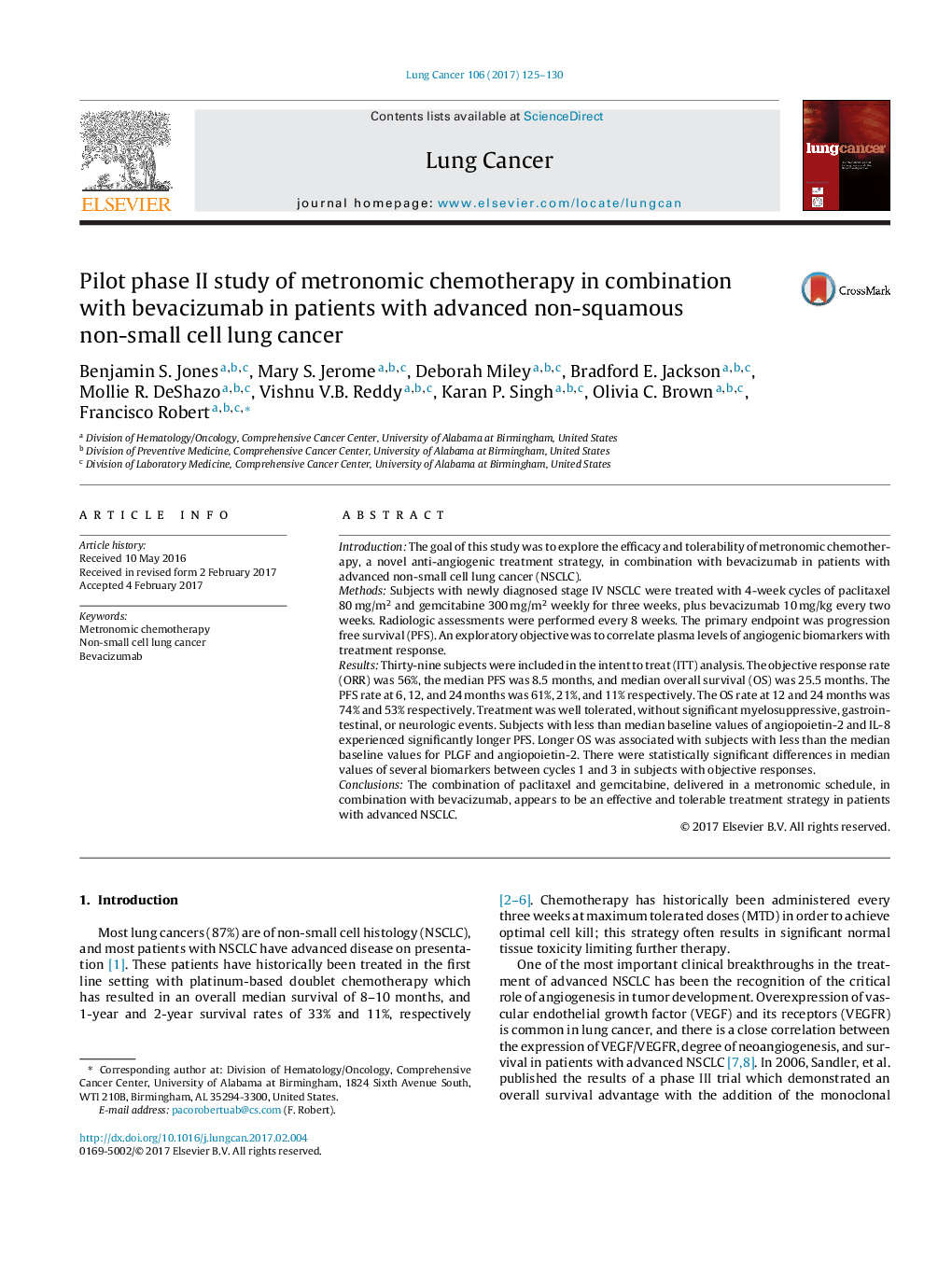| Article ID | Journal | Published Year | Pages | File Type |
|---|---|---|---|---|
| 5528154 | Lung Cancer | 2017 | 6 Pages |
â¢Metronomic chemotherapy appears tolerable and effective treatment strategy.â¢Improved PFS and OS.â¢Plasma biomarkers could potentially prognosticate responders to MC treatment.
IntroductionThe goal of this study was to explore the efficacy and tolerability of metronomic chemotherapy, a novel anti-angiogenic treatment strategy, in combination with bevacizumab in patients with advanced non-small cell lung cancer (NSCLC).MethodsSubjects with newly diagnosed stage IV NSCLC were treated with 4-week cycles of paclitaxel 80Â mg/m2 and gemcitabine 300Â mg/m2 weekly for three weeks, plus bevacizumab 10Â mg/kg every two weeks. Radiologic assessments were performed every 8 weeks. The primary endpoint was progression free survival (PFS). An exploratory objective was to correlate plasma levels of angiogenic biomarkers with treatment response.ResultsThirty-nine subjects were included in the intent to treat (ITT) analysis. The objective response rate (ORR) was 56%, the median PFS was 8.5 months, and median overall survival (OS) was 25.5 months. The PFS rate at 6, 12, and 24 months was 61%, 21%, and 11% respectively. The OS rate at 12 and 24 months was 74% and 53% respectively. Treatment was well tolerated, without significant myelosuppressive, gastrointestinal, or neurologic events. Subjects with less than median baseline values of angiopoietin-2 and IL-8 experienced significantly longer PFS. Longer OS was associated with subjects with less than the median baseline values for PLGF and angiopoietin-2. There were statistically significant differences in median values of several biomarkers between cycles 1 and 3 in subjects with objective responses.ConclusionsThe combination of paclitaxel and gemcitabine, delivered in a metronomic schedule, in combination with bevacizumab, appears to be an effective and tolerable treatment strategy in patients with advanced NSCLC.
